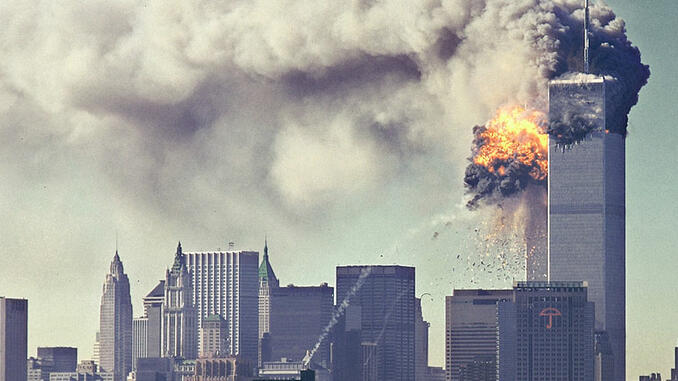
September 11th, 2001 is one of those events that anyone who is old enough remembers exactly what they were doing when they heard the news that terrorists had flown planes into the World Trade Center towers and the Pentagon. For many, time has faded and lessened the impact of the attacks that day—a day which changed America and the world. Two wars were started in response to the attacks, and now, almost 17 years later, America is still at war fighting al Qaeda and the Taliban. The 2,996 people who died in the attacks which caused carnage so great that body parts were still being discovered in New York City years after the attack, were all innocent victims. The attacks meant war, and Americans wanted war to avenge those killed. War is what they got. When George W. Bush visited Ground Zero in the days after the attacks he said he could feel a “blood lust” from those around him searching the rubble for bodies. “I can hear you! The rest of the world hears you! And the people—and the people who knocked these buildings down will hear all of us soon,” he declared during his visit.
For George W. Bush, invading Afghanistan was not enough, so he went to war and occupied Iraq in what turned out to be a massively expensive strategic gamble. Even though the terrorists attacked America from Afghanistan they had their origins in the Middle East. Iraq, Bush’s reasoning went, was the easiest way to change the equation of a region that was hostile to Western values and civilization. Democracy would be his weapon of choice.
Did his gamble pay off? That remains debatable to this day. It was an unpopular war and it is fashionable to say it was a failure. It certainly came with a high price tag of more than $2 trillion, and hundreds of thousands of civilians killed after the initial invasion crumbled into an occupation and then civil war. Though Iraq today is a different country than it was under Saddam Hussein, and even though the transition to an independent Iraq has been brutally slow, it is now standing on its own as a democracy. That struggle infected the wider region and helped fuel the Arab Spring that broke out in 2010 which was a massive uprising against tyranny in the Middle East. It is a struggle that continues to this day in many places and has reshuffled the deck of cards in the region.
It is certain that the invasion of Iraq took away funding and resources from the original war in Afghanistan. Today, a third American president has inherited the fighting in Afghanistan which sees a stubborn Taliban being aided by Pakistan. It has been a long and frustrating war, not only for the U.S., but for the people of Afghanistan as well. After the passage of so much time, for me, it is important to take time to reflect on how it all started with the attacks of September 11th, 2001.
The passage of time dulls the senses and the details of the moment fade and become forgotten. The fire, the smoke, the ash, the sounds all seem to fade with time. The sorrow and fear are no longer fresh in my mind, but I try my best to remember. I have read many books about September 11th and the events that transpired after. I even have watched on YouTube recordings of the events as they happened that day—hours and hours of recorded live coverage—to help refresh my memory and understanding of how events unfolded.
Next year represents the first year people born after the attacks and have no memory of that day will be able to vote and join the military. To them, September 11th is an event they only read about in history books and see on documentaries on television. It is the legacy of the wars of September 11th they inherit along with the successes and failures of America’s response. With no end in sight in Afghanistan, some of those with no memory of September 11th will be called to fight in a war that began before they were born. It is more important than ever to make sure we do not forget and pass on the lessons to the new generation that has found itself in the fight. As the phrase that was adopted after the attacks go, never forget.
